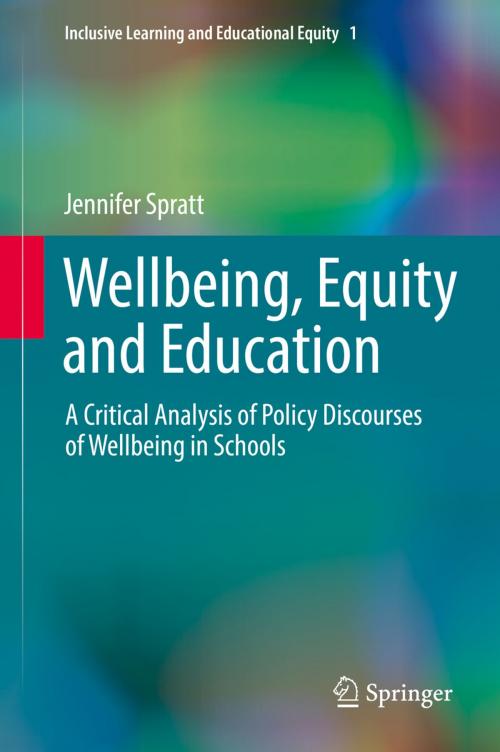Wellbeing, Equity and Education
A Critical Analysis of Policy Discourses of Wellbeing in Schools
Nonfiction, Reference & Language, Education & Teaching, Educational Theory, Educational Reform, Administration| Author: | Jennifer Spratt | ISBN: | 9783319500669 |
| Publisher: | Springer International Publishing | Publication: | January 20, 2017 |
| Imprint: | Springer | Language: | English |
| Author: | Jennifer Spratt |
| ISBN: | 9783319500669 |
| Publisher: | Springer International Publishing |
| Publication: | January 20, 2017 |
| Imprint: | Springer |
| Language: | English |
This book critically examines multiple discourses of wellbeing in relation to the composite aims of schooling. Drawing from a Scottish study, the book disentangles the discursive complexity, to better understand what can happen in the name of wellbeing, and in particular, how wellbeing is linked to learning in schools. Arguing that educational discourses have been overshadowed by discourses of other groups, the book examines the political and ideological policy aims that can be supported by different discourses of wellbeing. It also uses interview data to show how teachers and policy actors accepted, or re-shaped and remodelled the policy discourses as they made sense of them in their own work.
When addressing schools’ responses to inequalities, discussions are often framed in terms of wellbeing. Yet wellbeing as a concept is poorly defined and differently understood across academic and professional disciplines such as philosophy, psychology, health promotion, and social care. Nonetheless, its universally positive connotations allow policy changes to be ushered in, unchallenged. Powerful actions can be exerted through the use of soft vocabulary as the discourse of wellbeing legitimates schools’ intervention into personal aspects of children’s lives. As educators worldwide struggle over the meaning and purpose of schooling, discourses of wellbeing can be mobilised in support of different agendas. This book demonstrates how this holds both dangers and opportunities for equality in education. Amartya Sen’s Capability Approach is used to offer a way forward in which different understandings of wellbeing can be drawn together to offer a perspective that enhances young people’s freedoms in education and their freedoms gained through education.
This book critically examines multiple discourses of wellbeing in relation to the composite aims of schooling. Drawing from a Scottish study, the book disentangles the discursive complexity, to better understand what can happen in the name of wellbeing, and in particular, how wellbeing is linked to learning in schools. Arguing that educational discourses have been overshadowed by discourses of other groups, the book examines the political and ideological policy aims that can be supported by different discourses of wellbeing. It also uses interview data to show how teachers and policy actors accepted, or re-shaped and remodelled the policy discourses as they made sense of them in their own work.
When addressing schools’ responses to inequalities, discussions are often framed in terms of wellbeing. Yet wellbeing as a concept is poorly defined and differently understood across academic and professional disciplines such as philosophy, psychology, health promotion, and social care. Nonetheless, its universally positive connotations allow policy changes to be ushered in, unchallenged. Powerful actions can be exerted through the use of soft vocabulary as the discourse of wellbeing legitimates schools’ intervention into personal aspects of children’s lives. As educators worldwide struggle over the meaning and purpose of schooling, discourses of wellbeing can be mobilised in support of different agendas. This book demonstrates how this holds both dangers and opportunities for equality in education. Amartya Sen’s Capability Approach is used to offer a way forward in which different understandings of wellbeing can be drawn together to offer a perspective that enhances young people’s freedoms in education and their freedoms gained through education.















